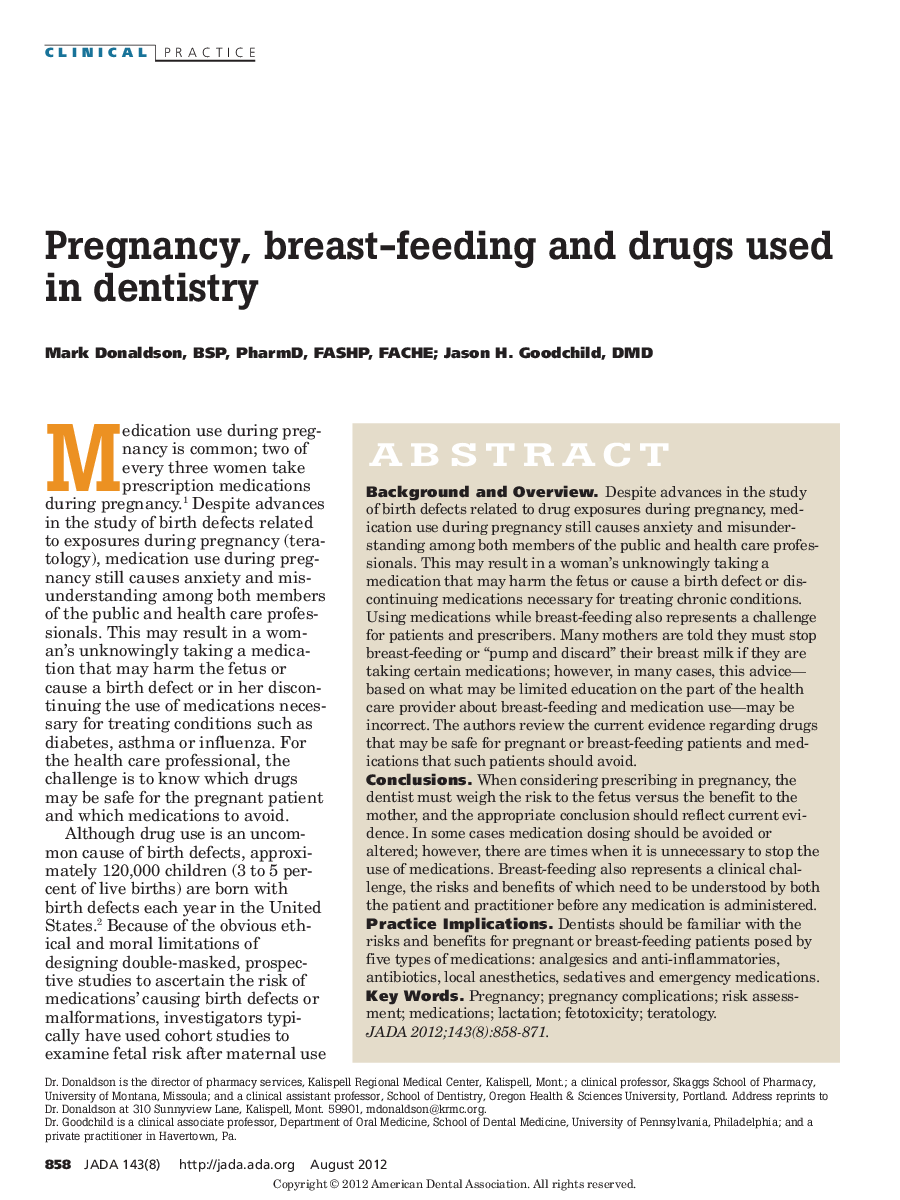| Article ID | Journal | Published Year | Pages | File Type |
|---|---|---|---|---|
| 3137578 | The Journal of the American Dental Association | 2012 | 14 Pages |
ABSTRACTBackground and OverviewDespite advances in the study of birth defects related to drug exposures during pregnancy, medication use during pregnancy still causes anxiety and misunderstanding among both members of the public and health care professionals. This may result in a woman’s unknowingly taking a medication that may harm the fetus or cause a birth defect or discontinuing medications necessary for treating chronic conditions. Using medications while breast-feeding also represents a challenge for patients and prescribers. Many mothers are told they must stop breast-feeding or “pump and discard” their breast milk if they are taking certain medications; however, in many cases, this advice—based on what may be limited education on the part of the health care provider about breast-feeding and medication use—may be incorrect. The authors review the current evidence regarding drugs that may be safe for pregnant or breast-feeding patients and medications that such patients should avoid.ConclusionsWhen considering prescribing in pregnancy, the dentist must weigh the risk to the fetus versus the benefit to the mother, and the appropriate conclusion should reflect current evidence. In some cases medication dosing should be avoided or altered; however, there are times when it is unnecessary to stop the use of medications. Breast-feeding also represents a clinical challenge, the risks and benefits of which need to be understood by both the patient and practitioner before any medication is administered.Practice ImplicationsDentists should be familiar with the risks and benefits for pregnant or breast-feeding patients posed by five types of medications: analgesics and anti-inflammatories, antibiotics, local anesthetics, sedatives and emergency medications.
